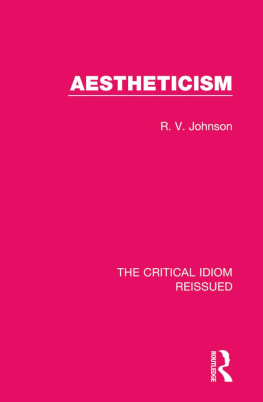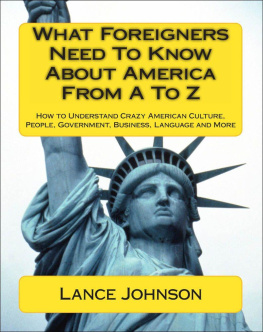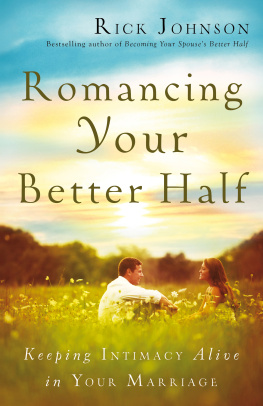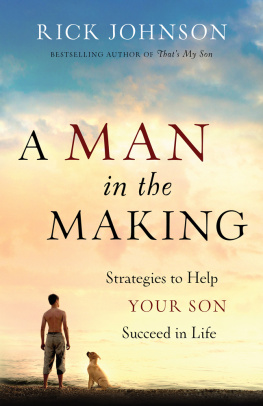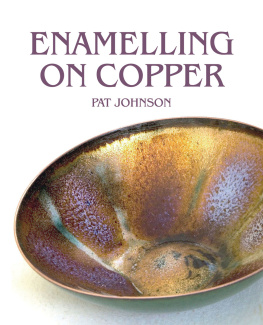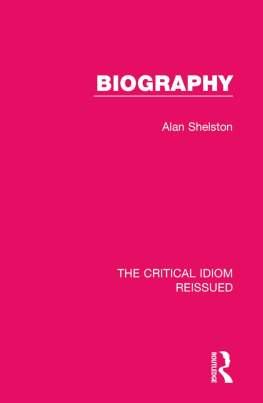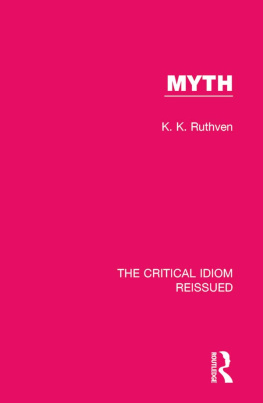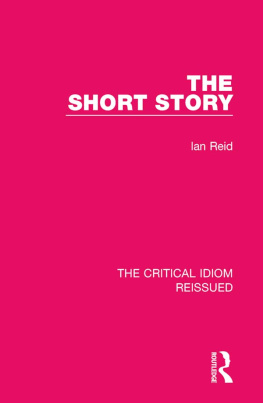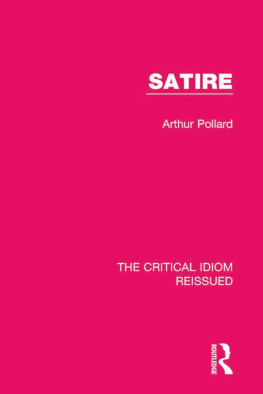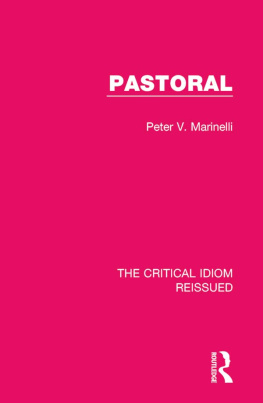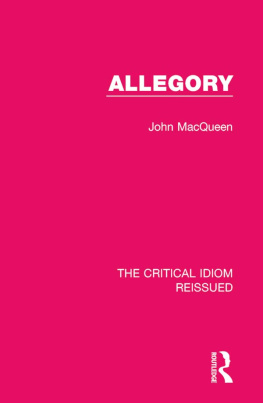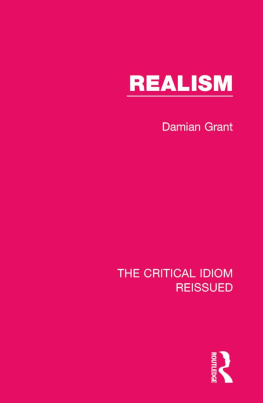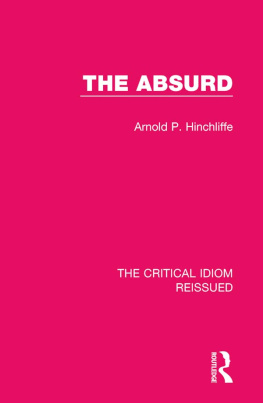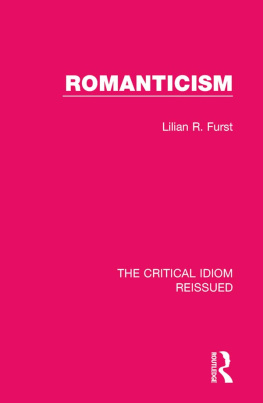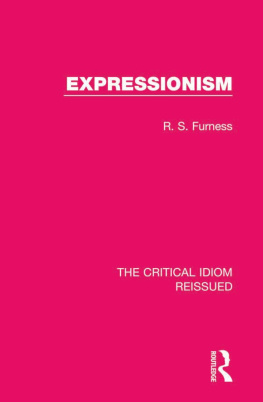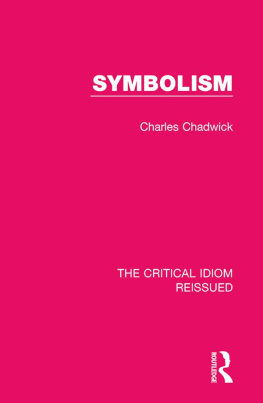Table of Contents
Guide
Print Page Numbers
THE CRITICAL IDIOM REISSUED
Volume 3
AESTHETICISM
AESTHETICISM
R. V. JOHNSON
First published in 1969 by Methuen & Co Ltd
This edition first published in 2018
by Routledge
2 Park Square, Milton Park, Abingdon, Oxon OX14 4RN
and by Routledge
711 Third Avenue, New York, NY 10017
Routledge is an imprint of the Taylor & Francis Group, an informa business
1969 R. V. Johnson
All rights reserved. No part of this book may be reprinted or reproduced or utilised in any form or by any electronic, mechanical, or other means, now known or hereafter invented, including photocopying and recording, or in any information storage or retrieval system, without permission in writing from the publishers.
Trademark notice: Product or corporate names may be trademarks or registered trademarks, and are used only for identification and explanation without intent to infringe.
British Library Cataloguing in Publication Data
A catalogue record for this book is available from the British Library
ISBN: 978-1-138-21971-7 (Set)
ISBN: 978-1-315-26975-7 (Set) (ebk)
ISBN: 978-1-138-23097-2 (Volume 3) (hbk)
ISBN: 978-1-315-31472-3 (Volume 3) (ebk)
Publishers Note
The publisher has gone to great lengths to ensure the quality of this reprint but points out that some imperfections in the original copies may be apparent.
Disclaimer
The publisher has made every effort to trace copyright holders and would welcome correspondence from those they have been unable to trace.
Aestheticism
R. V. Johnson
First published 1969
by Methuen & Co Ltd
11 New Fetter LaneLondon EC4
1969 R. V. Johnson
SBN 416 14550 7 Hardback
SBN 416 14560 4 Paperback
This title is available in both hard and paperback editions. The paperback edition is sold subject to the condition that it shall not, by way of trade or otherwise, be lent, re-sold, hired out, or otherwise circulated without the publishers prior consent in any form of binding or cover other than that in which it is published and without a similar condition including this condition being imposed on the subsequent purchaser.
Distributed in the U.S.A.
by Barnes & Noble Inc.
Contents
3 Aestheticism and Poetry:
Poe to Moore
4 Exponents of Aestheticism:
Pater and Wilde
This volume is one of a series of short studies, each dealing with a single key item, or a group of two or three key items, in our critical vocabulary. The purpose of the series differs from that served by the standard glossaries of literary terms. Many terms are adequately defined for the needs of students by the brief entries in these glossaries, and such terms will not be the subjects of studies in the present series. But there are other terms which cannot be made familiar by means of compact definitions. Students need to grow accustomed to them through simple and straightforward but reasonably full discussions of them. The purpose of this series is to provide such discussions.
Some of the terms in question refer to literary movements (e.g. Romanticism, Aestheticism, etc.), others to literary kinds (e.g. Comedy, Epic, etc.), and still others to stylistic features (e.g. Irony, The Conceit, etc.). Because of this diversity of subject- matter, no attempt has been made to impose a uniform pattern upon the studies. But all authors have tried to provide as full illustrative quotation as possible, to make reference whenever appropriate to more than one literature, and to compose their studies in such a way as to guide readers towards the short bibliographies in which they have made suggestions for further reading.
John D. Jump
University of Manchester
Aestheticism means, broadly, a devotion to beauty, and to beauty primarily as found in the arts and in whatever is attractive in the world around us. (People talk of beauty in other contexts the beauty of holiness, for example, or the beauty of a geometrical theorem.) It might be thought that aestheticism, in this broad sense, has existed throughout civilized history. The word aestheticism first appeared, however, in the nineteenth century, and it denoted something new: not merely a devotion to beauty, but a new conviction of the importance of beauty as compared with and even in opposition to other values. Aestheticism came to stand for certain ideas about life and art ideas which then assumed a distinct form, and presented a new and serious challenge to more traditional and conventional ideas. In England, they became recognizable in the mid-to-late Victorian period certainly from the eighteen sixties onwards and in France somewhat earlier.
Aestheticism appears in different but interrelated aspects: as a view of life the idea of treating life in the spirit of art; as a view of art art for arts sake; and as a characteristic of actual works of art and literature. It was in the nineteenth century that these ideas and tendencies first clearly defined themselves, and they did so in confrontation with other ideas about life and art a confrontation sharper, more obviously pervasive in the society and culture of the time than it is today. However, some of the ideas of nineteenth-century aestheticism are still with us; and it played an important part in the development of modern attitudes to the arts and their place in society. Thus we are partly indebted to the nineteenth-century aesthetes for the relaxation, during the present century, of literary censorship and other restrictions on literary and artistic expression.
Like other contributors to the present series, I shall be trying to explain and elucidate a term in literary criticism. Consequently, the emphasis will be on literature. Aestheticism was not, however, an exclusively literary phenomenon, although, understandably, aesthetic ideas were expounded, more often than not, by men of letters, and although the implications of those ideas were, arguably, most drastic for literature. It had, however, implications for the graphic arts though not, as far as I can see, for music. (One strand in aestheticism was the desire to bring literature to a condition of pure art which music was already believed to enjoy.) Also, the exponents of literary aestheticism, such as Thophile Gautier in France or Oscar Wilde in England, were interested in the other arts, and commonly spoke of art and the artist, rather than specifically of literature.
I shall be writing for English-speaking readers and shall be mainly concerned with English literature. But any consideration of aestheticism must obviously take account of its French exponents. Aestheticism was a Western European and (if we include the important figure of Edgar Allan Poe) an American phenomenon. Writers important in the development of English aestheticism were deeply influenced by Continental writers such as Baudelaire and Gautier in France, and Hegel, as an aesthetic philosopher, in Germany. At the same time, I should hold that, notwithstanding these Continental influences, English aestheticism can still be seen as a natural development from English Romantic literature and from Romantic ideas about the creative imagination. I shall therefore stress the continuity, in England, between English Romanticism and aestheticism.

